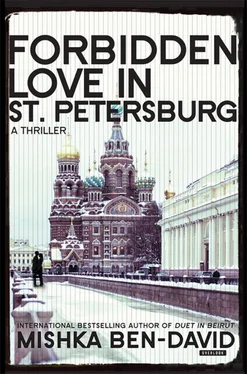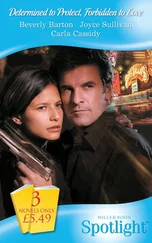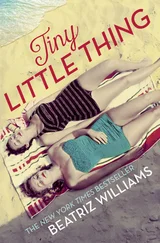Children? This time it was me asking.
We didn’t have any either. In today’s Russia people are not in such a hurry to bring children into the world.
I think that’s so in all northern countries, I replied.
Especially here, she said. In other countries it’s because of people’s careers, here it’s because of political and economic uncertainty. In this country, after the collapse of the Soviet Union, nothing is certain, especially not the economy.
Here, in Russia, this giant of a country, nothing is for sure? I wondered to myself. Everything’s relative. True, the communists came and went, the USSR vanished, millions paid a heavy price for it all, but hundreds of millions remained as they were. What would parents in my country, where the economy is the last thing on anyone’s mind, say? In that tiny country where surviving even the seventy years that the communist regime endured cannot be guaranteed?
I find it really strange that you and the Europeans and the Americans choose to open companies here, Anna concluded as I continued thinking my thoughts.
Strange? I said, regaining my composure. There are thousands of millionaires who got rich only because of the breakup of the Soviet Union. Prices here are still low enough to make a huge profit by buying here and selling in the West. In front of every classy hotel I’ve seen a fair number of expensive cars–Porsches and BMWs, Mercedes or Jaguars, with the oligarchs’ drivers standing by dressed in suits and ties. This is a sight I haven’t even seen in any city in Canada or the USA.
And this opportunity, despite being cut off from everything you are familiar with, makes it worthwhile for you to be here?
There wasn’t much that was worthwhile left for me there after the divorce. My parents died, I sold the farm, the few friends I had went their separate ways to various places in Canada and America. Reading quietly at home, which is what I did there, is something I can do just as well here, I said, trying to effect a smile.
Yes, that’s how I spend my evenings too, Anna said, reminding me that I was not alone in this club of solitude. I wish you success, she said, suddenly bringing to a close this particular conversation, by asking Mrs Vashkirova to bring the tea.
After the wine I didn’t want to drink the insipid local coffee that reminded me of the thinly-ground and tasteless Elite coffee I used to drink back home. So I too asked for a cup of tea.
We drank in silence. Suddenly it seemed to me that my presence was a nuisance, preventing her from reading. Before I’d finished drinking my tea I paid and got ready to leave.
You weren’t here these last few days, Anna said.
A short business trip, I answered. I sold some machinery and had to be there while it was assembled.
‘There?’
In Dagestan.
Dagestan! I’ve never been there. You are certainly on the lookout for exotic places to travel to.
Wherever the dollar takes me, I said, assuming the mantle of the businessman.
And I live here, in rubles, she said, and in her eyes I saw a streak of sadness.
As I got up to go, she took her book out of her bag.
HQ EXPRESSED ITS satisfaction with my report on the Dagestani deal and the anticipated follow-up, as well as with the initial briefing I had sent about Makhachkala. They asked me to begin looking into the possibility of becoming a partner in one of Mahashashli’s fishing fleets. I explained that this meant dealing with the Mafia but that didn’t bother HQ. The Russian Mafia wasn’t the Sicilian Mafia, I was told. In Russia–and certainly in the Republics–it’s simply the group that replaced the collapsed central authority and takes care to ensure the maintenance of order, for which, of course, it gets a payoff. In any case, the possibility of being able to sail the Caspian Sea in a vessel of our own, perhaps even reach the shores of Iran, seemed too attractive a proposition to resist.
When I went into the restaurant the following evening I didn’t see Anna and, after pausing for a moment, realized that I couldn’t simply allow myself to sit at her vacant window seat and so turned to my usual table. When she did arrive she smiled at me, waved, and promptly sat down by the window. I literally felt a physical pain, as the sense of expectation, or should I say of hope, plunged from my heart to the pit of my stomach. Apparently, for her, our encounter the previous evening amounted to no more than concluding a minor discussion of a literary issue. And anyway, what on earth do I have to offer her?
I’m not particularly good-looking, neither tall nor well-built. Recently, since I stopped working out and my job no longer demanded that I be in good shape, I’d put on a few excess kilos. I hadn’t shown any particular grasp of literature, I’m not an amusing or exciting conversationalist, or even a particularly successful businessman, seeing as I had to go all the way to St Petersburg to give my commercial activities a boost. The fact that I too am a solitary soul with a streak of sadness is no reason for anyone to be attracted to me. Perhaps the reverse is true.
But then I realized that the question of my chances of attracting her didn’t really bother me so much. I had a capricious wish to be with Anna. It wasn’t even a sexual desire. I wanted to gaze into her beautiful eyes, let my hand skim her smooth black hair with its sprinkling of grey, and kiss her dry lips.
I was–I had to admit–in the early stages of falling in love. I wasn’t of an age when one suddenly falls in love, but something about this beautiful and sad woman touched me to the core.
Before love happens a magical web is slowly woven. And Anna’s thinly spun and invisible threads of magic had been gradually closing in on me. I knew that if not severed while still tenuous, those threads, like a spider’s web, would turn into the most enduring bond imaginable.
Anna’s beauty was of the quiet kind, the kind I loved. But that was not the only thing about her that captivated me. A woman’s beauty is an advertisement. But with Anna I felt that the content was more beautiful than the packaging.
I had her book with me but only handed it over as I was leaving and she didn’t invite me to join her. Despondent, I walked out into the cold of the night.
We continued to eat separately, restricting ourselves to a casual, passing ‘hello’. I tried to suppress the awakening inside me in case the ties became too burdensome and prevented me from devoting myself to my work which had begun to show signs of life; following in the footsteps of the Dagestanis, the Tajikis had also at long last opened a letter of credit and invited me to visit them–a turn of events that pleased HQ a great deal and me less so.
And then, one evening, before she had finished her meal, Anna came over and sat casually in the chair opposite mine, keeping her legs to the side of the table.
This is a bit embarrassing, but I’ll ask you anyway. My husband and I had–have–a subscription for two for the Philharmonic. The next concert is tomorrow evening. I haven’t found anyone who wants to go and it’s a pity for such an expensive ticket to go begging. Are you interested?
She said she couldn’t remember the whole programme but the concert was dedicated to the works of Tchaikovsky and there would be passages from the third, fourth and sixth symphonies, plus a few other lighter pieces, and would end with the overture to the 1812 which I ‘surely like’.
With pleasure, Tchaikovsky is my favourite classical composer, I said, trying to curb the eruption of joy I felt.
Anna looked happy. We’ll meet at the entrance to the Mariinsky Theatre?
If you want, but I’d be happy to pick you up.
Better we should meet there, she said. At eight fifteen?
Читать дальше












